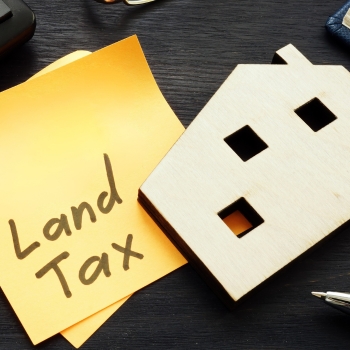NSW Land Tax Changes 2025

New 25% Rule for Principal Place of Residence Exemption
If you own property in New South Wales and claim the Principal Place of Residence (PPR) land tax exemption, you need to be aware of a major rule changes taking effect that could cost you in the 2026 land tax year.
As part of the NSW land tax changes for 2025, the state government has tightened the rules around who qualifies for the PPR exemption. Homeowners must now hold at least 25% ownership of their property to remain eligible for the exemption.
This change could affect thousands of NSW property owners who previously relied on even a small ownership share to avoid land tax.
What Is the Principal Place of Residence Exemption?
In NSW, the Principal Place of Residence exemption allows you to avoid paying land tax on a property you live in full-time—provided it meets certain criteria.
Until now, the exemption applied even if you owned only a small share of the property, such as 1% or 10%. But from 2024, the rules are stricter.
What’s Changed in 2025
Under the new rules:
- You must own at least 25% of the property, and
- It must be your primary residence as of 1 February 2025,
- To remain eligible for the land tax exemption in 2026.
If you fall below the 25% threshold, you will lose the exemption and may be liable for land tax even if you live in the property.
Key Dates | |
1 Feb 2025 | Snapshot date for 2026 land tax eligibility |
1 Jan 2026 | First assessments issued under new rules |
Who Is Affected by the New Rule?
This rule change affects property owners across NSW who:
- Own less than 25% of their home
- Co-own property with parents, children, siblings, or partners
- Purchased a property as part of a family trust or SMSF
- Recently separated or divorced but remain on the title
- Are using complex investment structures or joint ventures
Real-world examples:
- Parents helping kids buy a home with a 10% share? ❌ No longer exempt.
- Divorced partner with 20% ownership still living in the property? ❌ No longer exempt.
- Investor owns 90%, friend lives in property with 10% share? ❌ No longer exempt.
What’s the Financial Impact?
If your property no longer qualifies for the Principal Place of Residence exemption, and the land value exceeds $1,075,000, you may now receive a land tax bill.
Example:
- Land value: $1.5 million
- Tax threshold: $1.075 million
- Taxable value: $425,000
- Land tax payable: $100 + 1.6% of $425,000 = $6,900
That’s a substantial cost, especially for owners who previously paid nothing.
Why Has NSW Made This Change?
The NSW Government introduced this rule to:
- Close loopholes used to claim tax exemptions with minimal ownership
- Ensure the exemption benefits those with a genuine ownership stake
- Boost land tax revenue to fund infrastructure and housing initiatives
What You Should Do Now
At Cashflow Financial, we recommend
1. Checking Your Ownership Share
Review your property title or speak with your solicitor. If your share is under 25%, you may need to act.
2. Talk to Co-Owners
Consider whether you can increase your share or restructure ownership to meet the 25% rule.
3. Understand Tax Implications
Restructuring ownership may trigger capital gains tax, stamp duty, or estate planning implications. Get professional advice before making changes.
4. Review Trust or Company Structures
Properties held in trusts, companies or SMSFs often don’t qualify for the PPR exemption. Make sure you’re aware of the rules for your structure.
5. Update Revenue NSW
Make sure Revenue NSW has up-to-date ownership and usage details to avoid incorrect assessments.
Need Help Navigating the New Land Tax Rules?
Our experienced team at Cashflow Financial can help you:
- Assess your current land tax risk
- Understand your ownership structure
- Plan tax-effective strategies to retain exemptions where possible
- Liaise with your legal and financial advisors on any title changes
We’ll ensure you stay compliant, minimise your tax exposure, and avoid any surprise bills in 2026. Don’t wait until a land tax bill lands in your inbox.
Book a consultation with Cashflow Financial today and let us guide you through the 2025 land tax changes. Contact Us